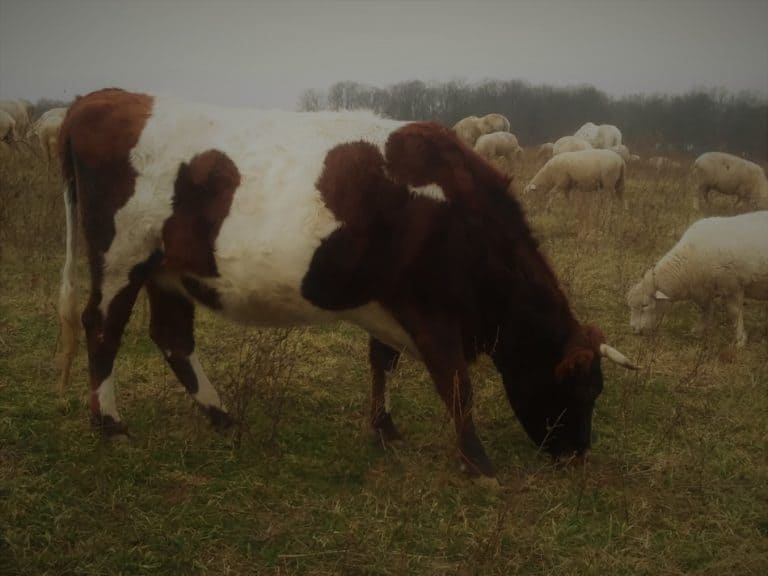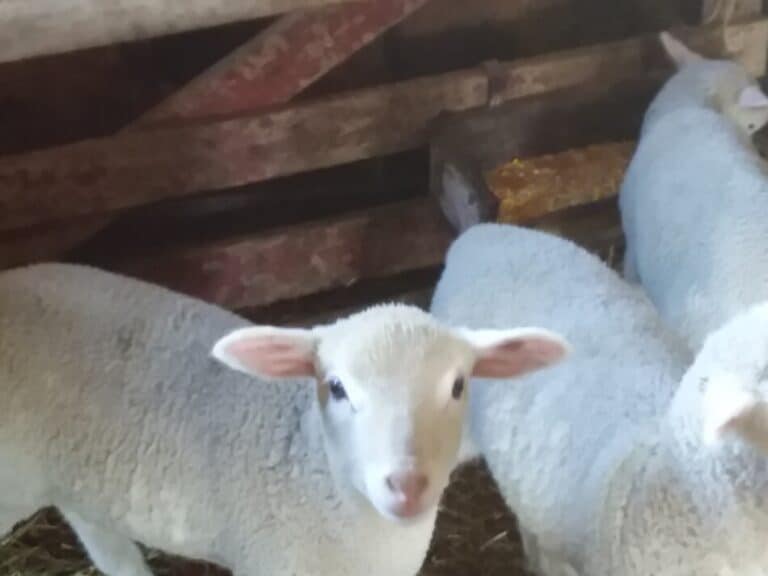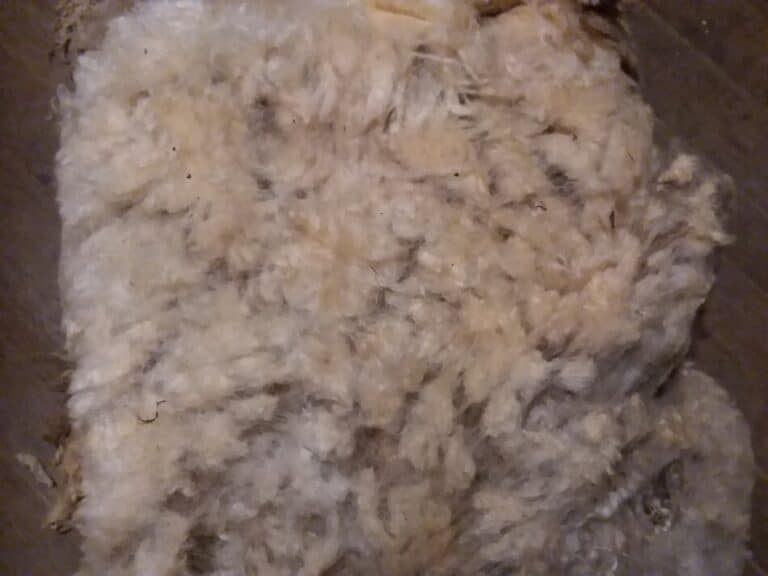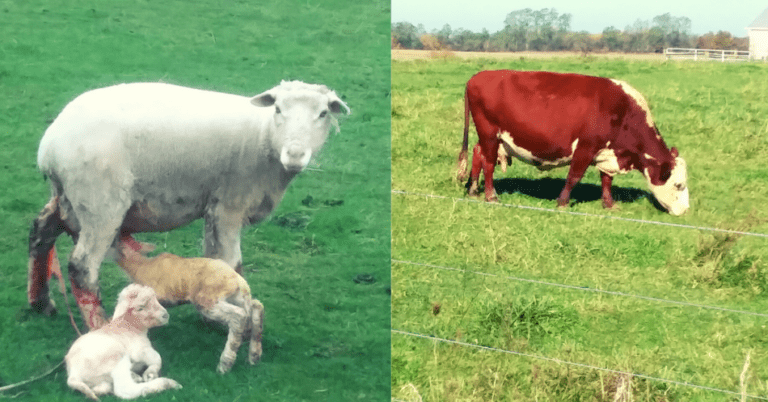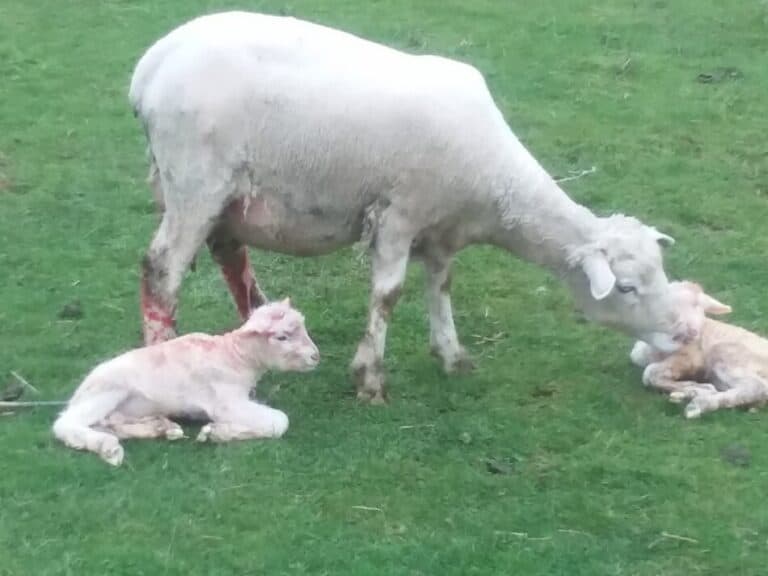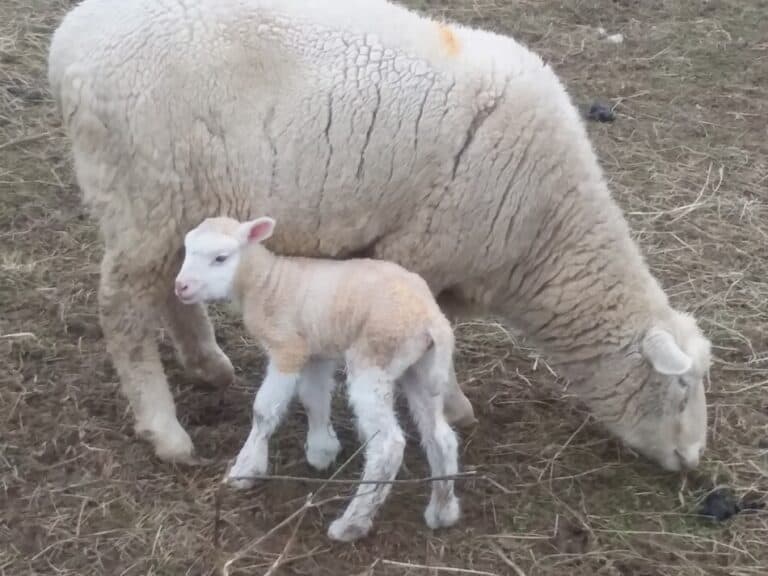12 Ways Sheep Benefit Farmers, The Land And The Community
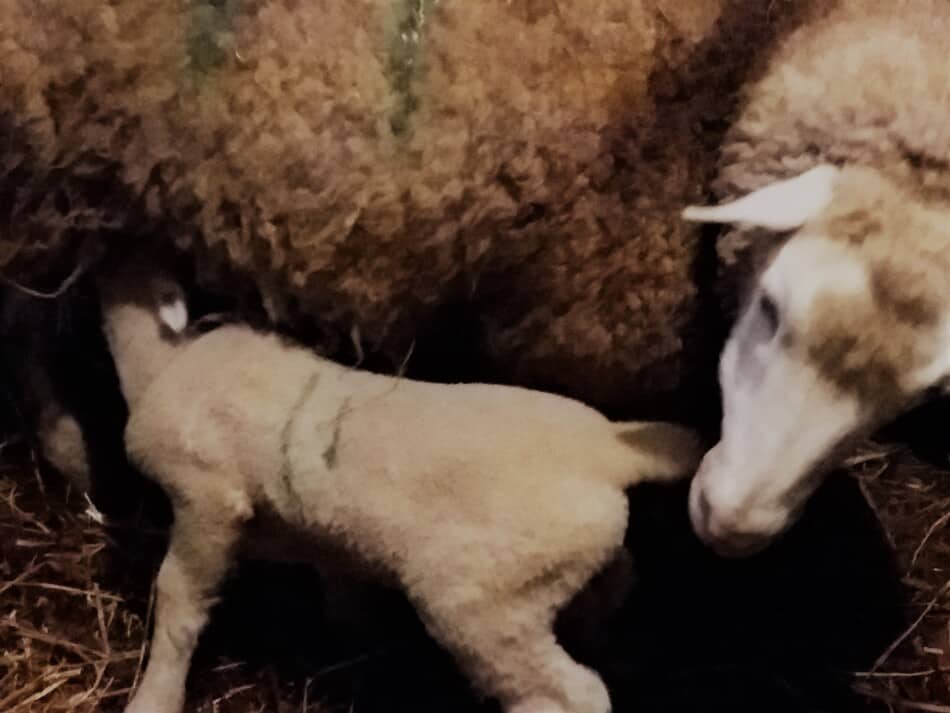
Sheep are becoming more popular or at least they are getting more attention these days, but why? What are the benefits of sheep to the folks raising them, the land and the community?
Sheep thrive on grass
The main benefit of sheep production is that sheep thrive on grass. Sheep grow well on a forage based diet, all they need is a source of water and access to a salt block. The grass provides all of the nutrients sheep need!
Many areas are not suited for crop farming because of topography, soil structure, inaccessibility, etc. are wonderful areas for sheep grazing. Grazing keeps the land productive while increasing fertility of the land, all at the same time!
Do Sheep Ruin Pastures? is an article I wrote to dispel the myth that sheep ruin pastures, they don’t. Actually, if well managed, sheep improve pastures!
Most lambs are raised on pasture
You can feel good about buying lamb for dinner, since most folks that raise sheep are keeping those sheep on pasture for a significant part of their lives.
While it is certainly possible to have sheep in a barn their entire lives, it is not all that common.
Why? Sheep require more space and openness per head than other animals which are kept inside. The economics just don’t work out all that well for confinement sheep.
Pros And Cons Of Raising Sheep is an overview of the best and worst of sheep farming, from our point of view, (we make our living with sheep).
Sheep can provide no pesticide weed control
Not only do sheep eat grass, but they also eat weeds. Some weeds, like burdock, dandelion and chicory, sheep will eat first, then eat the grass as a second choice!
It’s crazy to me that some folks are killing these “weeds” when they could just use sheep to get rid of the weeds without the poison!
Cud Crew is a grazing for hire operation out of Macon, GA. They specialize in using sheep to control weeds, check them out if you want to see a interesting sheep business idea being put into action.
Additionally, weeds will get weaker the more they are mowed or eaten off. Every time the sheep graze an area they restart the grass growth and knock back the weed growth at the same time.
Sheep are mobile forage eaters
Many folks think that animals can only eat the grass on land that is owned by the farmer, not so. Ruminants (sheep, cattle, goats) are the way that people have made use of forage for thousands of years.
Using sheep to harvest forages from a wide area is an old idea that is now coming back into our awareness.
While this may sound obvious at first, stick with me here, sheep are mobile grazers. This means they can be used not only for the grass on the home farm but for the grass or other forages growing on other properties.
Sheep can graze down right of ways, under power lines, sections of land beside highways, in with solar arrays and any other place you can think of that has grass that needs to be occasionally eaten off.
Sheep Fencing goes over your options to use electric for sheep fence. You have some choices, we prefer to use netting.
Sheep provide fertilizer
When using sheep to graze off an area, you get more than just shorter grass and pruned back weeds, you also get fertilizer in the form of manure (including urine).
Manure is a powerhouse of nutrients just waiting to jump into action to rebuild any plants that are close enough to benefit.
Using Manure In The Home Garden is a Wisconsin Horticulture article showing how much manure to put on your plants. Scroll down for a chart listing specific manures and how much to use.
Sheep poop is normally in the form of little balls, about the size of peas. These little poo balls are quickly acted upon and taken into the soil by microorganisms.
We notice a huge fertility jump in places where the sheep rest, usually for shade.
Wow, the next time we come around to that pasture area for grazing, the grass has just jumped out of the ground, the extra poo really made a difference and was the one thing needed for that grass to put on scads more growth.
Actually, this is one of our nutrient rebuilding plans for our farm, especially in the poorer pastures.
We winter the sheep on one of our poorer producing pastures, to boost up the manure and urine deposition to that area for increased growth next season. So far, the difference has been noticeable and it’s just one year in!
Sheep are small bodied
Sheep have small bodies, compared to most other livestock that is commonly raised on farms and ranches. This makes sheep easier to handle by a variety of people making them a family friendly animal.
The other benefit of small body size is that sheep can be put into all kinds of areas that are not appropriate for larger stock. Places where the soil is too fragile to handle the traffic of cattle, can often handle the use by sheep.
This is seen in the smaller islands off of the U.K. mainland. Sure those areas may have a few cattle, but the main livestock for the area is sheep, since sheep are an ideal match for the growing conditions of the area.
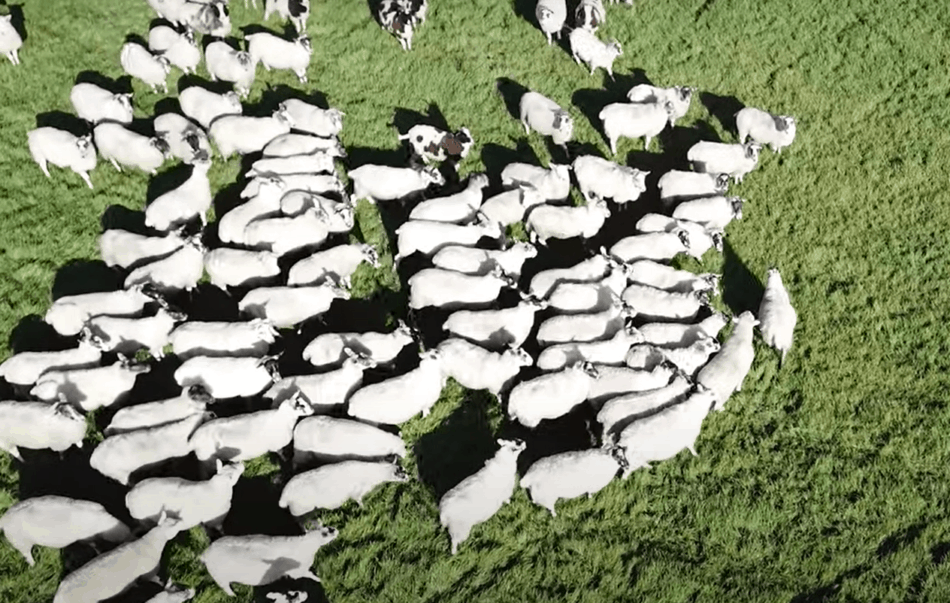
Sheep grow quickly
Sheep go from newborn to full size in just about one year, that’s pretty fast growth for a ruminant (cud chewer).
Sheep provide results, in the form of reaching reproductive age or getting to finishing weight, in a shorter time period than most other animals primarily raised on the pastures of the world.
For instance, cattle take two years to reach reproductive age, for sheep, it’s one year. Cattle take over two years to grow to market weight on grass, sheep take 6-7 months.
Sheep are small area appropriate
A flock of sheep can be happily kept in a pretty small area, do to the smaller body size of the sheep themselves.
Sheep are also a great alternative to lawnmowers! Read Backyard Sheep for more details on ways to get your yard to make you money by using sheep instead of a lawnmower.
Sheep have year round income options
For the sheep farmer, sheep can provide a year round income option, if the flock is managed accordingly. Sheep can be sold smaller, getting your money sooner, or sold later, getting better prices since there are less lambs at this time.
If the sheep are able to breed out of season, the income opportunities increase further to out of season lambs, which means finished lambs in the times of the year when price is high because supply is low.
There is also the option to sell breeding stock, a common option for most sheep farmers, since sheep reproduce themselves, plus some extra, every year.
Specialty wool and sheep fleeces sell well
Depending upon the type of sheep and the wool those sheep produce, there is a good market for specialty fleeces and wool goods, like ready to spin top or roving, yarn, carded wool for felting, etc.
Sheep with easy to use fleeces, especially fleeces in interesting colors, are selling very well directly from the farm on farm websites and bigger marketplaces, like Etsy.
Not all wool is desirable to handcrafters, so the type of sheep, it’s wool and the care of the fleece are all variables, with wool being worth $0.05 per pound for normal sheep wool to $20+ per pound for in demand specialty fleeces.
I just purchased a CVM (California Variegated Mutant) fleece for $65 that was 2.5 pounds of unwashed wool. That’s a good chunk of change per pound, but worth it, the fleece is a joy to spin.
Not all specialty fleeces will sell for this high of a price but many will sell for a good price, as long as they are clean, no debris like vegetable matter, and are in good shape.
For instance, our shearer sells Blue Faced Leicester for $15 a pound, not too bad!
Sheep And Wool Festival is an article I wrote about the Great Lakes Sheep And Wool Festival which is a huge event around here revolving around specialty wool and handcrafting with wool. I love going, it’s interesting every year.
100+ Breeds Of Sheep For Wool has a huge chart I made to show many of the different sheep breeds and the common uses for their wool. The chart is big, but it’s alphabetical so it’s not too overwhelming.
Sheep are easy add on to your farm
Sheep are easy to add to things you are currently doing on your farm. Just a few cattle panels, which are easy to find at garden or farm stores, and a water bucket and you have a fast set up for a small flock of sheep.
While sheep do need some sort of shelter, it does not have to be extensive. You can repurpose a shed or your garage, as long as it is open and airy, it will be fine for your sheep.
The other great part about sheep is that they do not need a roof, they need shelter, that’s different. Being able to get into a wooded area, or having plenty of hills to get behind are just a few of the sheep appropriate shelter options.
Sheep are also an easy add on to other enterprises, meaning if you have cattle, adding a small flock of sheep will get you more use out of your land with minimal increase in feeding. Sheep eat different forages than cattle.
A few sheep could easily be used as extra grass eaters for someone with a big garden, or a family raising rabbits or chickens in the backyard and needing more the grass knocked back to so it looks nice or to kept shorter for the chickens.
Sheep can also be used to graze around buildings, we know of a hog farmer who keeps a flock of sheep just to graze the grass between the buildings of his hogs and make a little extra money rather than using a lawnmower.
Lamb and mutton are flavorful, easy to cook meats
And finally, one benefit that is available for all meat eaters of the world, lamb is one of the easiest meats to cook, truly.
I just roast it with a coating of oil, a little water in the bottom of the pan and I throw in some garlic cloves, that’s it. Super easy and turns out great.
Sheep over one year in age are no longer lamb when they enter the food chain, they are now mutton. Mutton has more flavor and is usually priced lower per pound than lamb. This is a double bonus to anyone on a budget.
How To Cook Lamb is a BBC Good Food article that has an easy to follow recipe for leg of lamb, if you are looking for a specific place to get started cooking!
